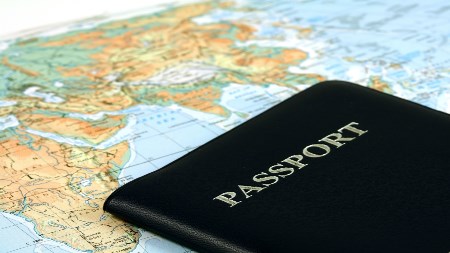Here’s what the law says about letting property to a foreign individual, and what the risks are.
The demand for rental properties in South Africa is constantly increasing and more foreigners than ever are using South Africa as a business gateway to Africa. While we may be feeling the economic pinch, foreigners can reap the rewards by renting property in South Africa for affordable prices. Landlords may now be faced with a question they haven’t considered before – should they let to a person should from another country?
Legalities
Let’s start by clearing up the exact definitions. The Immigration Act defines a “legal foreigner” as a person in possession of either a valid visa that entitles them to study, work or do business in South Africa for a certain period, or a permanent residence permit approved by the Department of Home Affairs.
In principle, a landlord or tenant can legitimately lease or sell immovable property to any person recognised under the Act as a legal foreigner. In other words, provided the foreign person is the holder of either a legal temporary residence permit or a permanent residence permit, a landlord may let a property to them.
Temporary residence permits that exist are: a visitor’s permit, a work or entrepreneurial permit and a retired person permit. Any of these are valid permits for a foreign individual in South Africa to hold. It’s important to note that foreigners in South Africa who hold a work permit are regarded as residents for the duration of their work permit, by the South African National Reserve Bank.
Risks
Legally, landlords are permitted to let their property out to foreigners, provided the foreigner is in the country legally. However, this begs the question of whether this is advisable or not for a landlord, and what the risks are.
The Immigration Act states that letting to an illegal foreigner, is classified as aiding and abetting an illegal foreigner, and this is a criminal offence. Therefore, landlords would have to check very carefully whether the foreign individual is in fact legally allowed in the country. This would include following up with their employee, or making sure that their permit is valid. It is also advisable to do some checks on the foreign individual’s passport number, to make sure that everything is legal and in order. All of this takes time, effort and potentially money from the landlord.
If the foreigner has recently moved to South Africa, it may be difficult for the landlord to contact their references. Not only will the tenant’s references be in another country, they may or may not speak the same language and may be in a different time zone. All of this can be a big challenge, as well as cost a pretty penny from numerous phone calls to another country.
Should a foreign tenant default on their rent, they cannot be blacklisted. This poses a problem for landlords having to deal with defaulting foreign tenants, as they cannot have the same consequences as a South African citizen.
It is in the landlord’s best interests to ask for a substantial deposit, when letting to a foreign tenant, to cater for potential defaults and legal fees. This is one way to recoup any potential losses that may be incurred.
However, the decision ultimately lies with the landlord who should judge each case individually, as certain foreign individuals may be more viable as tenants than others. Alternatively, if a landlord is not comfortable doing the necessary checks and has concerns about letting to a foreigner, it is advisable get a rental agent to do it for them.


